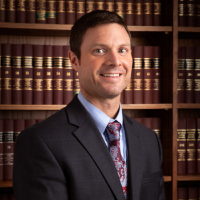 Mulliken DUI-DWI Lawyers, Michigan
Mulliken DUI-DWI Lawyers, Michigan
Sponsored Law Firm
-
 x
x

Click For More Info:
-
Keches Law Group
122 Dean Street Taunton, MA 02780» view mapSocial Security, Personal Injury, Workers Comp. Protecting Your Rights
Our team of experienced personal injury attorneys has over 130 years of combined experience representing individuals and families injured due to the negligence of others.
800-713-8650
Sponsored Lawyers
1-10 of 14 matches
DUI-DWI, Criminal, Bankruptcy, Divorce & Family Law
Wesley Todd originally joined the firm as an intern in 2008. He has been a shareholder of the firm since 2020. He was born in Kalamazoo, Michigan and graduated from Albion College in 2006 with a major in political science. While at Albion, he was an active member of Delta Sigma Phi fraternity, Alpha Phi Omega, national service fraternity, Habitat for Humanity and the Varsity Tennis Team. Wesley was awarded a Merit Scholarship to attend Michigan State University College of Law and earned his Juris Doctorate cum laude in 2010. After earning his Juris Doctorate, he established his private solo law practice in his hometown of Kalamazoo from 2011 to 2014. After this period Wesley joined Vandervoort Christ and Fisher, practicing there for over six years. Subsequently Wesley re-joined the firm in 2020. Wesley primarily specializes in Criminal and Family Law, as well as civil litigation. He has experience in a plethora of areas from divorce and custody hearings to criminal matters and Bankruptcy. He has presented cases in all counties of West Michigan. He is admitted to practice in the State of Michigan and in the Federal District Court for the Western District of Michigan. Wesley participates in activities with All Species Kinship and is a vintage car and sports enthusiast. Wesley is a member of the Kalamazoo County Bar Association and Calhoun County Bar Association (President 2019-2020). Wesley’s passion for law stems from an intrinsic motivation to provide justice for all people.
(more)


 Sean Flaherty Taunton, MA
Sean Flaherty Taunton, MA AboutKeches Law Group
AboutKeches Law Group Practice AreasExpertise
Practice AreasExpertise

